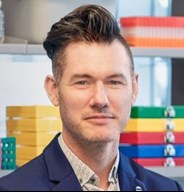Neurodegeneration Early Career Researcher Meeting
4th November 2021 - Thank you for tuning in!
Thank you for all who attended our Neurodegeneration Early Career Researcher Meeting last Thursday! The recording for the event will be available soon. For any questions, please email events@ptglab.com.
| Date | Thursday 4th November 2021 |
| Time | 10am ET / 9am CT /2pm GMT / 3pm CET |
| Location | Zoom |
Register Here |
View the meeting schedule |
ECR Speakers Announced!
Keynote Speaker
Dr Shane LiddelowNYU Langone, United States. Assistant Professor, Department of Neuroscience and Physiology. "Glia and Mentors: all that matters is support"What makes a good mentor and what the heck do astrocytes have to do with anything? A quick overview of good mentor habits and exciting glialbiology. |
 |
About the speaker
Dr Shane Liddelow gained his Bachelors of Science (Hons) and Biomedical Science from the University of Melbourne, Australia, majoring in Neuroscience and Anatomy & Cell Biology. He received his PhD with Katarzyna Dziegielewska and Norman Saunders in Pharmacology also from the University of Melbourne. As a postdoctoral fellow at Stanford University his research focused on astrocytes, the major glial subtype in the brain. Now Shane is a highly successful Assistant Professor at NYU Langone. His most recent research showed that reactive astrocytes release a toxic factor that kills specific subtypes of neurons and are present in brains of patients with Alzheimer’s disease.
In addition to his glowing publication record and academic CV, Shane is a key advocate for Early-Career Researchers and for encouraging inclusivity and diversity in science.
Key Publications
Neurotoxic reactive astrocytes are induced by activated microglia
Liddelow, Shane A et al. Nature. 2017
Last year's event - Neurodegeneration Early-Career Researcher Meeting 2020
Timestamps of recording:
Introduction
0:00:00-0:05:45 - Dr. Rebecca Northeast, Proteintech and Dr. Mahmoud Maina, University of Surrey
ECR Speakers
0:06:07-0:08:15 - Henriette Haukedal, University of Copenhagen
0:08:39-0:21:42 - Dr. Siobhan Crilly, University of Manchester
0:22:02-0:37:40 - Dr. Cara Croft, University of Florida
0:38:05-0:56:40 - Dr. Oliver Bracko, Cornell University
ECR speaker questions
0:57:02-1:43:00 - Dr. Mahmoud Maina, University of Surrey
Keynote
1:28:38-2:06:49 - Prof Tara Spires-Jones, University of Edinburgh
Proteintech’s inaugural Neurodegeneration ECR meeting took place virtually on the 22nd of October 2020. It truly was an international event, with researchers attending from 32 countries, highlighting how virtual events can break down travel barriers and enhance global collaboration in science.
The ECR speakers were excellent and key to the event’s success. Henriette Haukedal, a PhD student from the University of Denmark, presented her work on patient-derived iPSCs to investigate Presenilin 1 in familial Alzheimer’s disease, demonstrating markers that are consistent with early disease markers in vivo. Next, Dr. Siobhan Crilly from the University of Manchester presented the work from her PhD using zebrafish in a model of haemorrhagic stroke, screening compounds to predict improved outcome from reduced brain cell death. Dr. Cara Croft from the University of Florida then followed with her work investigating the clearance dynamics of tau inclusions in murine organotypic brain slice cultures, demonstrating novel information on the dynamic formation and half-life of tau inclusions. The ECR session was closed by Dr. Oliver Bracko from Cornell University, who showed that inhibition of VEGF signaling in a mouse model of Alzheimer’s disease improved cortical blood flow and increased the integrity of the blood-brain barrier, which are aspects known to have severe pathological effects. Dr. Mahmoud Maina chaired the event, seamlessly handling all the questions coming in via the chat function and ensuring all the speakers had equal participation in answering questions.
Keynote speaker Prof. Tara Spires-Jones ended the session with an excellent talk on the synaptic changes in Alzheimer’s disease. In line with an emphasis on early-career research, Tara also spoke about her own journey in academia, sharing her career trajectory and discussing how it is not always a straight path to success. She encouraged resilience in these troubled times and highlighted the importance of inclusion and diversity in science, as well as the need to stay connected and encourage collaboration across borders.
Our aims in running this event were to create a platform for young scientists to present their work and to encourage communication and collaboration at a time when physical events are not possible. The response was overwhelmingly positive and the communication and exchange of ideas was humbling to observe. Thank you for being a part of the event and contributing to its success, we are looking forward to running it again next year!
Written by Dr. Rebecca Northeast, Technical Specialist for Proteintech Europe











